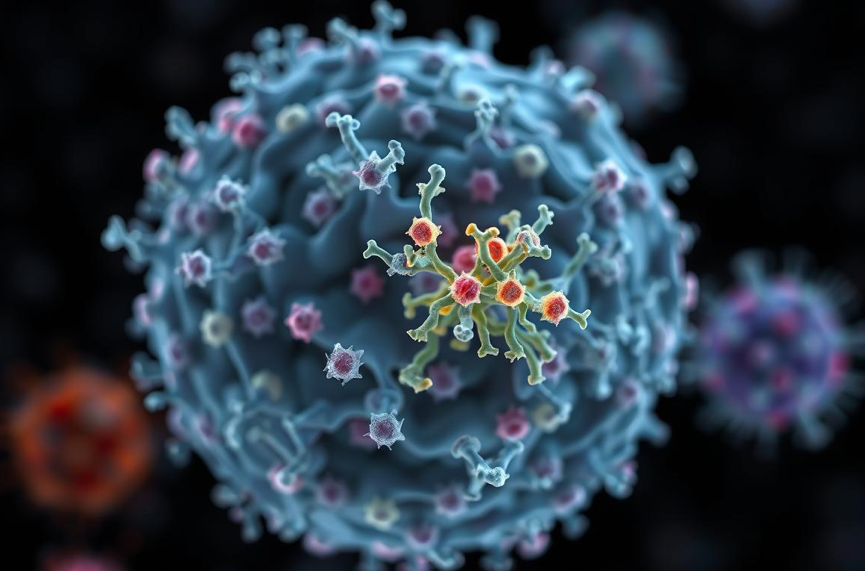
Is Coffee Bad for Your Gut? A Science-Backed Analysis
Share
Is Coffee Bad for Your Gut? A Science-Backed Analysis
The relationship between coffee and gut health is complex and often misunderstood. With over 400 bioactive compounds, coffee can influence your digestive system in multiple ways—some beneficial, others potentially problematic. This article examines the scientific evidence behind coffee's effects on gut health, helping you make informed decisions about your morning brew. For those wanting to optimize their coffee routine for better digestion, our free guide offers additional practical brewing recommendations.

Key Takeaways
- Coffee's acidity (pH 4.85-5.10) can trigger digestive discomfort in sensitive individuals but has beneficial prebiotic effects for others
- Additives like artificial sweeteners, chemical creamers, and flavored syrups can disrupt gut bacteria balance
- Organic, low-acid, and mushroom coffee alternatives offer gut-friendly options for sensitive individuals
- Coffee consumption stimulates gut motility and can influence microbiome composition
- Brewing methods and coffee quality significantly impact digestive tolerance
How Coffee Interacts with Gut Health
Coffee's relationship with your digestive system begins the moment you take your first sip. Understanding these interactions can help explain why some people experience digestive discomfort while others find coffee beneficial for their gut function.
Caffeine's Effect on Gut Motility
Caffeine is a powerful stimulant that affects your digestive tract in several ways. According to a 2019 study published in Nutrients, caffeine increases colonic motor activity within minutes of consumption. "While coffee itself isn't necessarily bad for your gut, the caffeine in coffee can stimulate your digestive tract and increase gut motility," explains research from the Journal of Gastroenterology.
This stimulation explains why many people experience a bowel movement shortly after their morning cup. For those with regular digestion, this effect can be beneficial. However, for individuals with irritable bowel syndrome (IBS) or sensitive digestion, this increased motility may trigger uncomfortable symptoms.
Chlorogenic Acids and Microbiome Changes
Coffee contains chlorogenic acids (CGAs), polyphenol compounds with significant antioxidant properties. Recent research published in the Journal of Agricultural and Food Chemistry demonstrates that these compounds act as prebiotics, feeding beneficial gut bacteria.
A 2020 study in the American Journal of Clinical Nutrition found that regular coffee drinkers had higher levels of anti-inflammatory gut bacteria, particularly Bifidobacteria. These bacteria produce butyrate, a short-chain fatty acid that nourishes colon cells and reduces inflammation.
"Coffee consumption is associated with increased gut microbial diversity, which is generally considered a marker of gut health," notes research published in Nutrients. This diversity may explain some of coffee's long-term health benefits, including reduced risk of colorectal cancer and improved metabolic health.
The Additive Problem: What's Really Harming Your Gut
While pure coffee may offer gut health benefits, the additives commonly mixed into coffee drinks can counteract these positive effects. Understanding which ingredients cause the most harm can help you make better choices for your digestive health.
Chemical-Processed vs. Natural Coffee Preparation
The way coffee is processed significantly impacts its effect on your digestive system. Chemical-processed coffee uses solvents like methylene chloride to extract caffeine, potentially leaving trace chemical residues. Natural processing methods, in contrast, rely on water, carbon dioxide, or other natural processes.
"Choosing organic, naturally processed coffee can reduce your exposure to potential gut irritants found in conventionally grown and processed coffee," according to research published in Food and Chemical Toxicology. Natural processing preserves more of coffee's beneficial compounds while minimizing potential irritants.
| Additive | How It Harms Gut Health | Better Alternative |
| Artificial Sweeteners | Disrupt microbiome balance, increase glucose intolerance | Raw honey, maple syrup (in moderation) |
| Non-dairy Creamers | Contain carrageenan and artificial emulsifiers that irritate gut lining | Organic milk, almond milk without additives |
| Flavored Syrups | High in high-fructose corn syrup, artificial colors and flavors | Cinnamon, vanilla extract, cocoa powder |
| Whipped Cream | Contains carrageenan, high in saturated fat that feeds harmful bacteria | Coconut whipped cream, frothed milk |
| Sugar Alcohols | Cause bloating, gas, and diarrhea in sensitive individuals | Small amount of real sugar or monk fruit extract |
The evidence is clear that what you add to your coffee may be more problematic than the coffee itself. "Many of the digestive issues attributed to coffee consumption are actually caused by additives rather than the coffee itself," notes research in the International Journal of Food Sciences and Nutrition.
Actionable Tips for Gut-Friendly Coffee
If you love coffee but find it triggers digestive discomfort, you don't necessarily need to give it up. These evidence-based modifications can help you enjoy coffee while minimizing negative gut effects.
3 Brewing Methods to Reduce Acidity
Cold Brew Method
Cold brewing reduces acid content by up to 67% compared to hot brewing methods. Steep coarse grounds in cold water for 12-24 hours, then strain. The resulting coffee is smoother and gentler on sensitive stomachs.
Paper-Filtered Pour Over
Paper filters trap diterpenes and oils that can irritate the gut lining. Using a pour-over method with paper filters removes these compounds while preserving flavor and beneficial antioxidants.
Eggshell Neutralization
Adding cleaned, crushed eggshells to coffee grounds before brewing neutralizes acidity. The calcium carbonate in eggshells acts as a natural antacid, resulting in a smoother cup with less potential for irritation
Conclusion: Can Coffee Be Part of a Gut-Healthy Diet?
The evidence suggests that for most people, moderate coffee consumption can be part of a gut-healthy diet. "The polyphenols in coffee appear to promote the growth of beneficial gut bacteria, potentially outweighing the negative effects of its acidity for many individuals," according to research in the journal Nutrients.
The key factors that determine coffee's impact on your gut health include:
- Individual sensitivity to caffeine and acidity
- Brewing method and coffee quality
- Additives used in preparation
- Existing gut health conditions
- Timing of consumption (with or without food)
By making mindful choices about your coffee—selecting quality beans, using gut-friendly brewing methods, and avoiding harmful additives—you can enjoy your daily cup while supporting, rather than disrupting, your digestive health.




